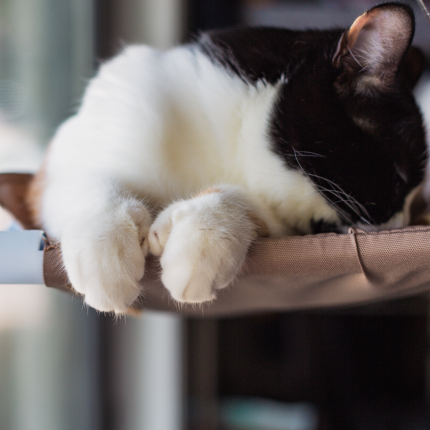Why Do Cats Eat Grass?
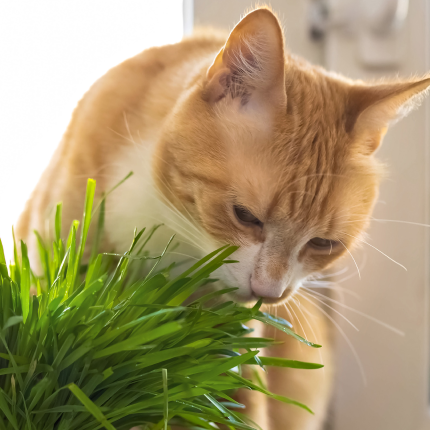
If you’ve ever caught your cat nibbling on a patch of grass, you’ve probably wondered, Why do they do that? Cats are obligate carnivores, meaning their bodies are built to thrive on meat, not plants. Yet many cats, even indoor ones, seem irresistibly drawn to a mouthful of greenery. While it may look odd, this behavior is surprisingly normal, and even healthy, for your feline friend.
advertisement
1. It’s Nature’s Way of Aiding Digestion
One of the most common theories behind grass-eating is that it helps cats with their digestion. Grass contains folic acid, a nutrient that supports oxygen movement in the blood and overall health. Additionally, cats can’t digest grass completely, so when they eat it, it helps clear their stomachs by triggering vomiting or aiding in the passage of hairballs or indigestible material. Essentially, cats may use grass as a natural digestive reset button.
2. Relieving Upset Stomachs
If your cat eats grass and then vomits soon after, don’t panic; it’s not necessarily a sign of illness. Grass can help cats relieve mild stomach discomfort or remove something irritating their digestive tract. Cats instinctively know how to manage minor digestive issues on their own, and eating grass is one of the tools nature has given them to do it.
3. Instinctive Behavior from Their Wild Ancestors
Even though domestic cats have evolved alongside humans, many of their instincts come from their wild ancestors. In the wild, big cats like lions and leopards have been observed eating grass and plants, likely for similar reasons: to clean out their systems and balance digestion after eating prey. So, your housecat’s grassy snack may simply be an inherited instinctive behavior that has stuck around through evolution.
4. A Source of Nutrients
Grass provides small amounts of nutrients, including fiber and chlorophyll, which may be beneficial for your cat’s overall health. Chlorophyll, for instance, has detoxifying and anti-inflammatory properties. While cats get most of their nutrition from meat, a bit of grass may serve as a natural supplement that helps keep their systems running smoothly.
5. Boredom or Curiosity
Sometimes, cats eat grass for no other reason than curiosity or entertainment. Cats are naturally inquisitive creatures and often explore the world through their senses, taste included. Indoor cats, in particular, may munch on houseplants or grass simply because it’s something new and interesting. Providing safe, cat-friendly grasses like wheatgrass or oat grass can satisfy their curiosity without exposing them to harmful plants.
6. Is It Ever a Problem?
Occasional grass-eating is normal, but there are a few things to watch out for.
- Avoid treated lawns: Never let your cat eat grass that has been sprayed with pesticides or fertilizers, as these chemicals can be toxic.
- Provide safe alternatives: You can grow organic cat grass indoors or buy pre-grown trays from pet stores.
- Monitor frequency: If your cat is vomiting excessively or seems obsessed with eating grass, it’s best to consult your veterinarian to rule out underlying digestive or nutritional issues.
advertisement
Final Thoughts
So, why do cats eat grass? In short, it’s a mix of instinct, digestion, and curiosity. Grass-eating is a perfectly normal feline behavior that may actually help your cat feel better. As long as you provide a safe, pesticide-free source of grass and keep an eye on their habits, your cat’s leafy snacking is nothing to worry about.

Featured Articles
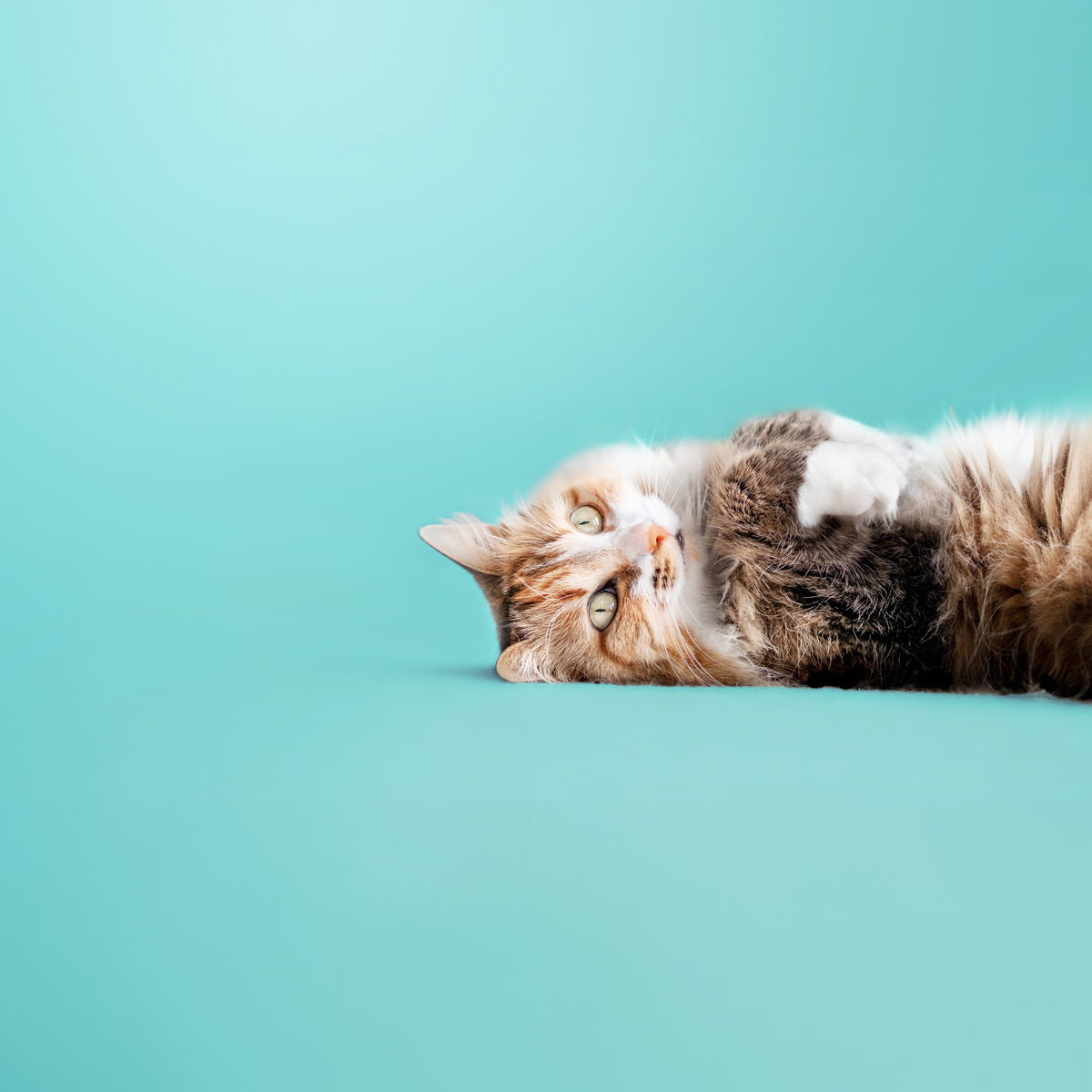
Why Do Cats Roll Over Into Their Backs But Not Let You Touch Their Bellies?
It’s common knowledge dogs love to have their tummies rubbed when they freely lay down before you and roll onto their backs. But, if you’re also familiar with cats, you know that when they roll onto their backs with their bellies exposed, rubbing the belly will most likely result in…
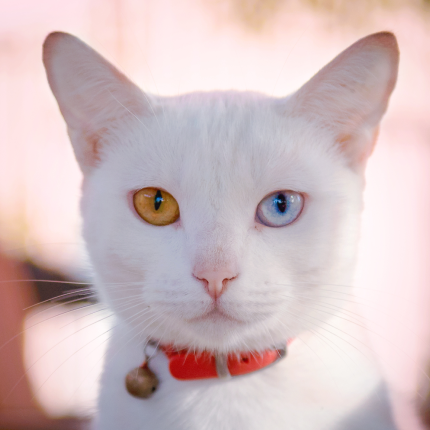
The Odd-Eyed Cat (AKA Heterochromia)
Cats are already beautiful and fascinating creatures, but people are bound to take notice when they have something as captivating as two different colored eyes. Odd-eyed cats always have one blue eye paired with either a green, yellow, or brown eye. This form of heterochromia occurs in other animals, including…
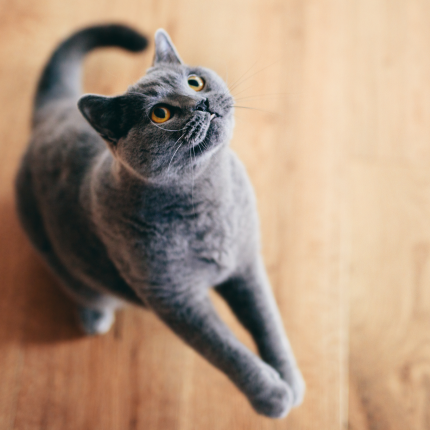
Greebles and Cats: The Origin and the Meaning
You may have seen an internet sensation concerning cats labeled “greebles.” Feel out of the loop? We’re here to help you. In 2019, Reddit user /user/literallyatree commented on a Reddit post about a cat that looks like it’s trying to slap a ghost. This user commented: “My family calls things…
